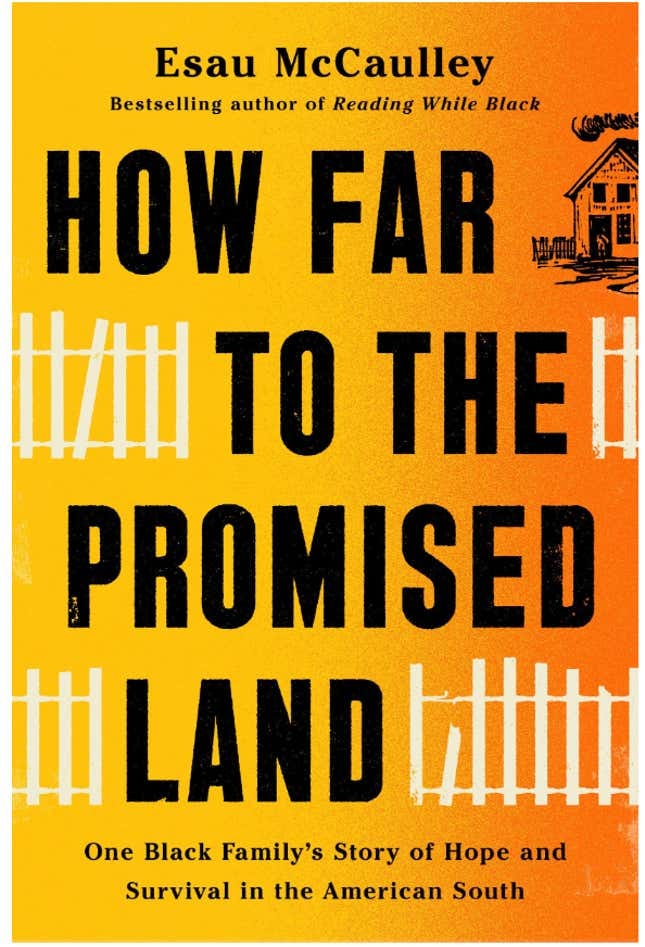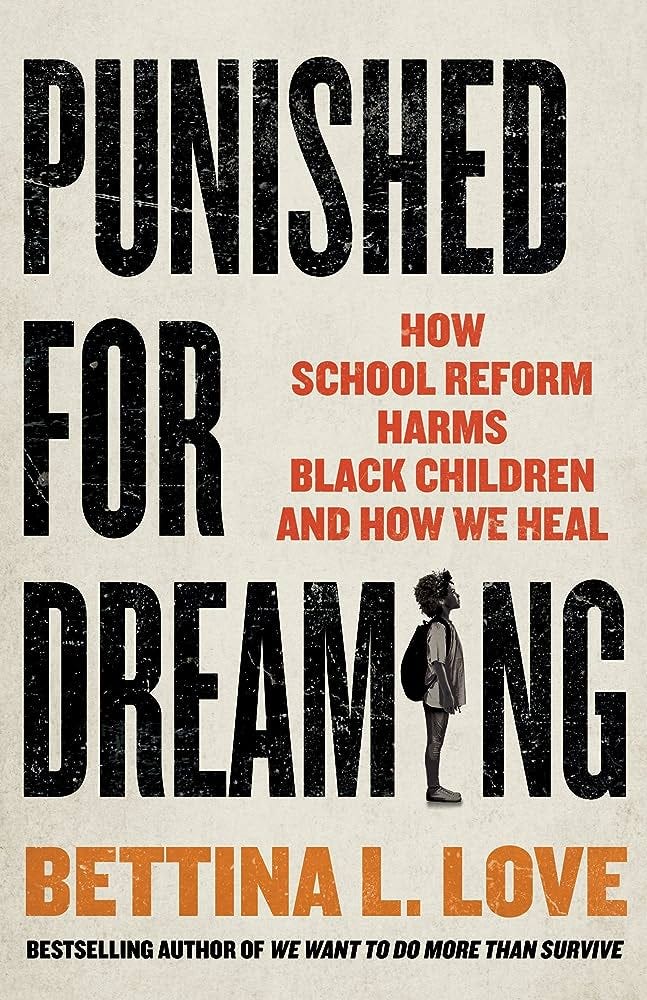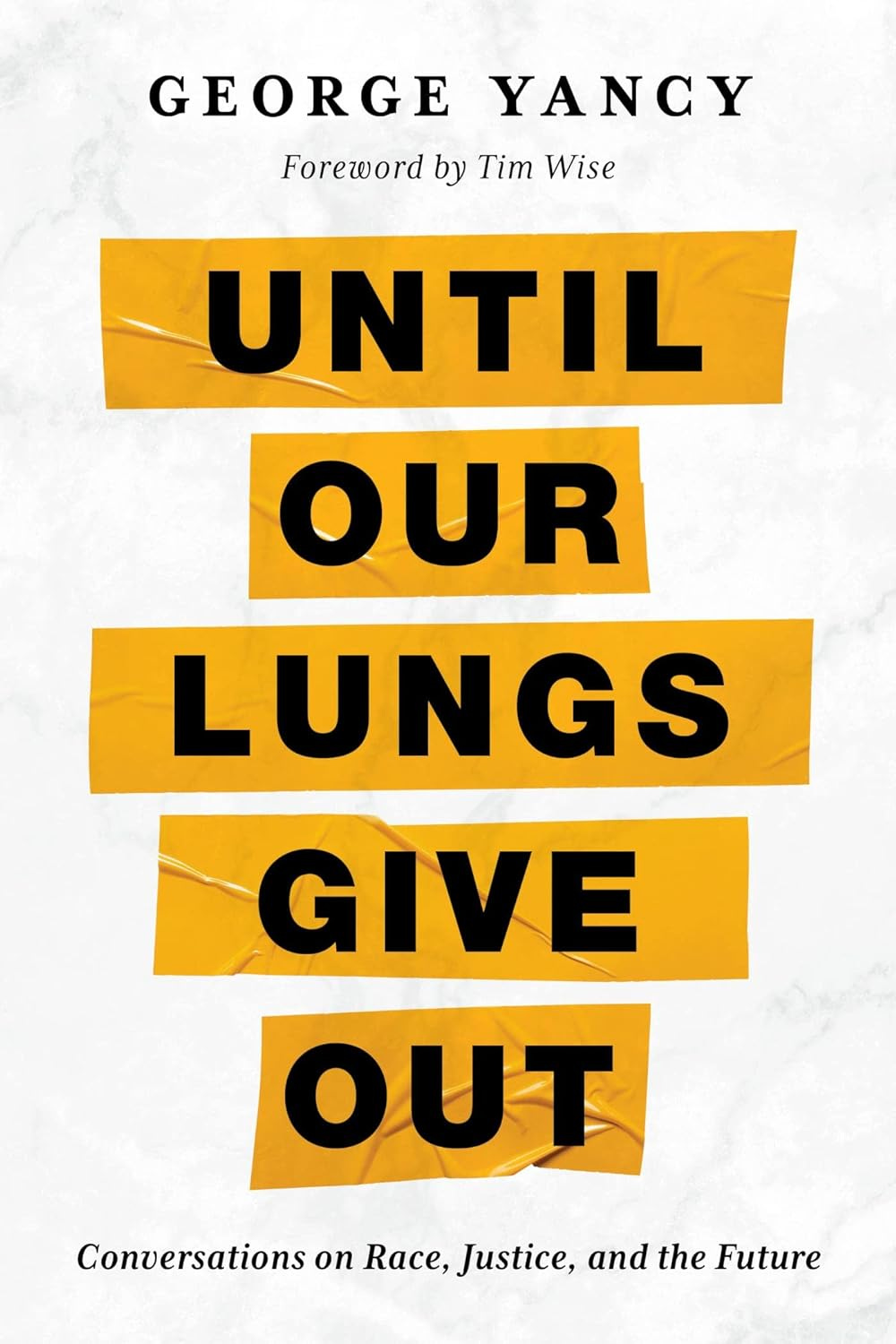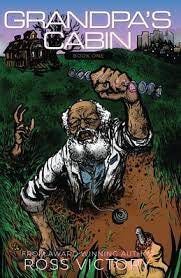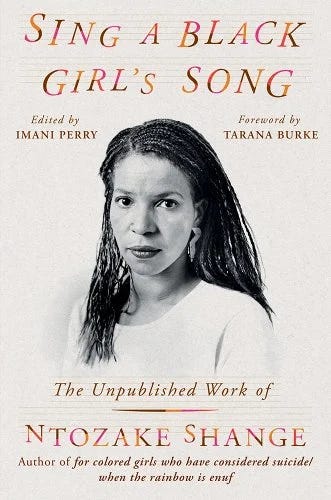Your reading can’t stop this September. We’re bringing you to Sankofa of D.C.
Happy Reading!
Slavery and the African American Story
From the moment Africans were first brought to the shores of the United States, they had a hand in shaping the country. Their labor created a strong economy, built our halls of government, and defined American society in profound ways. And though the Emancipation Proclamation wasn't signed until 300 years after the first Africans arrived, the fight for freedom started the moment they set foot on American soil.
This book contains the true narrative of the first 300 years of Africans in America: the struggles, the heroes, and the untold stories that are left out of textbooks. If you want to learn the truth about African American history in this country, start here.
(Children’s)
How Far to the Promised Land: One Black Family's Story of Hope and Survival in the American South
For much of his life, Esau McCaulley was taught to see himself as an exception: someone who, through hard work, faith, and determination, overcame childhood poverty, anti-Black racism, and an absent father to earn a job as a university professor and a life in the middle class.
But that narrative was called into question one night, when McCaulley answered the phone and learned that his father--whose absence defined his upbringing--died in a car crash. McCaulley was being asked to deliver his father's eulogy, to make sense of his complicated legacy in a country that only accepts Black men on the condition that they are exceptional, hardworking, perfect.
The resulting effort sent McCaulley back through his family history, seeking to understand the community that shaped him. In these pages, we meet his great-grandmother Sophia, a tenant farmer born with the gift of prophecy who scraped together a life in Jim Crow Alabama; his mother, Laurie, who raised four kids alone in an era when single Black mothers were demonized as "welfare queens"; and a cast of family, friends, and neighbors who won small victories in a world built to swallow Black lives. With profound honesty and compassion, he raises questions that implicate us all: What does each person's struggle to build a life teach us about what we owe each other? About what it means to be human?
How Far to the Promised Land is a thrilling and tender epic about being Black in America. It's a book that questions our too-simple narratives about poverty and upward mobility; a book in which the people normally written out of the American Dream are given voice.
(Nonfiction)
Punished for Dreaming: How School Reform Harms Black Children and How We Heal
In Punished for Dreaming Dr. Bettina Love argues forcefully that Reagan's presidency ushered in a War on Black Children, pathologizing and penalizing them in concert with the War on Drugs. New policies punished schools with policing, closure, and loss of funding in the name of reform, as white savior, egalitarian efforts increasingly allowed private interests to infiltrate the system. These changes implicated children of color, and Black children in particular, as low performing, making it all too easy to turn a blind eye to their disproportionate conviction and incarceration. Today, there is little national conversation about a structural overhaul of American schools; cosmetic changes, rooted in anti-Blackness, are now passed off as justice.
It is time to put a price tag on the miseducation of Black children. In this prequel to The New Jim Crow, Dr. Love serves up a blistering account of four decades of educational reform through the lens of the people who lived it. Punished for Dreaming lays bare the devastating effect on 25 Black Americans caught in the intersection of economic gain and racist ideology. Then, with input from leading U.S. economists, Dr. Love offers a road map for repair, arguing for reparations with transformation for all children at its core.
(Nonfiction)
A Walk in the Woods
A week after the funeral
I stare in the morning mirror
Angry that my father's eyes
Stare back at me.
Confused and distraught after the death of his father, a boy opens an envelope he left behind and is surprised to find a map of the woods beyond their house, with one spot marked in bright red. But why? The woods had been something they shared together, why would his father want him to go alone?
Slowly, his mind settles as he sets off through the spaces he once explored with his dad, passing familiar beech and black oak trees, flitting Carolina wrens, and a garter snake they named Sal. When he reaches the spot marked on the map, he finds pages upon pages of drawings of woodland creatures, made by his father when he was his age. What he sees shows him a side of his dad he never knew, and something even deeper for them to share together. His dad knew what he really needed was a walk in the woods.
New York Times bestselling author Nikki Grimes and the Caldecott Award winning illustrator Jerry Pinkney spent the early days of the pandemic emailing back and forth and talking about collaborating on a book, with Jerry sharing all of the pictures he took of the woods around his house. From this, they conjured a story of a boy's struggle with grief, and all the things he sees and feels on a walk through the forest.
Jerry sadly passed away in the fall of 2021, but not before he delivered tight pencil sketches of the forests he loved. When his son Brian took on the task of completing the illustrations, he found himself connecting with his father in a whole new way, his experience mirroring that of the boy in the book. The result is a simultaneously touching and deeply authentic story about the ways shared pastimes keep us close to those we've lost.
(Children’s)
One BloodUntil Our Lungs Give Out: Conversations on Race, Justice, and the Future
From Library Journal's Starred Review: "All readers stand to learn something from this compelling book." Award-winning author, scholar, and social visionary George Yancy brings together the greatest minds of our time to speak truth to power and welcome everyone into a conversation about the pursuit of justice, equality, and peace. This interwoven collection of searingly honest interviews with leading intellectuals includes conversations with Noam Chomsky, Judith Butler, Cornel West, Robin D. G. Kelley, and Peter McLaren. Each conversation bears witness to the weighty moment in which it was first conducted and presented by Truthout and Tikkun magazines while pointing to ramifications, future hurdles, and practical optimism for moving forward. Learning how to speak about such topics as white supremacy and global whiteness, xenophobia, anti-BIPOC racism, fear of critical race theory, and the importance of Black feminist and trans perspectives, readers will be better able to join future conversations with their peers, those in power, and those who need to be empowered to change the status quo.
(Nonfiction)
Grandpa's Cabin: Book 1
At eighty-four years old, widower and award-winning geneticist Bernie Crenshaw has reached the end of his life. Bernie gifts his only grandson, eighteen-year-old Inglewood high school senior Nova, his multimillion-dollar property located in Los Angeles' Hollywood Hills.
Hours before his death, Bernie informs Nova that he did terrible deeds years ago. Bernie reveals that he never got caught because his freedom was contingent on an agreement he made with a "woman in the shadows" to keep the cabin in the family's bloodline. Nova promises his grandfather that he will never sell the property.
Years after Bernie's death, Nova hosts a wild twenty-first birthday party weekend filled with alcohol, music, and OnlyFans web cameras. After a handful of eerie encounters in the surrounding Los Angeles forest, Nova's friends allege that his grandpa's cabin is the burial ground for people who disappeared during their childhood.
The birthday weekend shifts from celebration to terror as the friends piece together that the man Nova knew as "Popsi" matches the profile of one of the most notorious wanted criminals in Los Angeles-"L.A. Love Hunter."
Will Nova preserve the Crenshaw family's sadistic legacy, or will he choose the rare and valuable gift of friendship?
(Fiction)
Sing a Black Girl's Song: The Unpublished Work of Ntozake Shange
In the late '60s, Ntozake Shange was a student at Barnard College discovering her budding talent as a writer, publishing in her school's literary journal, and finding her unique voice. By the time she left us in 2018, Shange had scorched blazing trails across countless pages and stages, redefining genre and form as we know them, each verse, dance, and song a love letter to Black women and girls, and the community at large.
Sing a Black Girl's Song is a new posthumous collection of Shange's unpublished poems, essays, and plays from throughout the life of the seminal Black feminist writer. In these pages we meet young Shange, learn the moments that inspired for colored girls who have considered suicide/when the rainbow is enuf..., travel with an eclectic family of musicians, sit on "The Couch" opposite Shange's therapist, and discover plays written after for colored girls' international success. Sing a Black Girl's Song houses, in their original form, the literary rebel's politically charged verses from the Black Arts Movement era alongside her signature tender rhythm and cadence that capture the minutia and nuance of Black life. Sing a Black Girl's Song is the continuation of a literary tradition that has bolstered generations of writers and a long-lasting gift from one of the fiercest and most highly celebrated artists of our time.
(Poetry)





